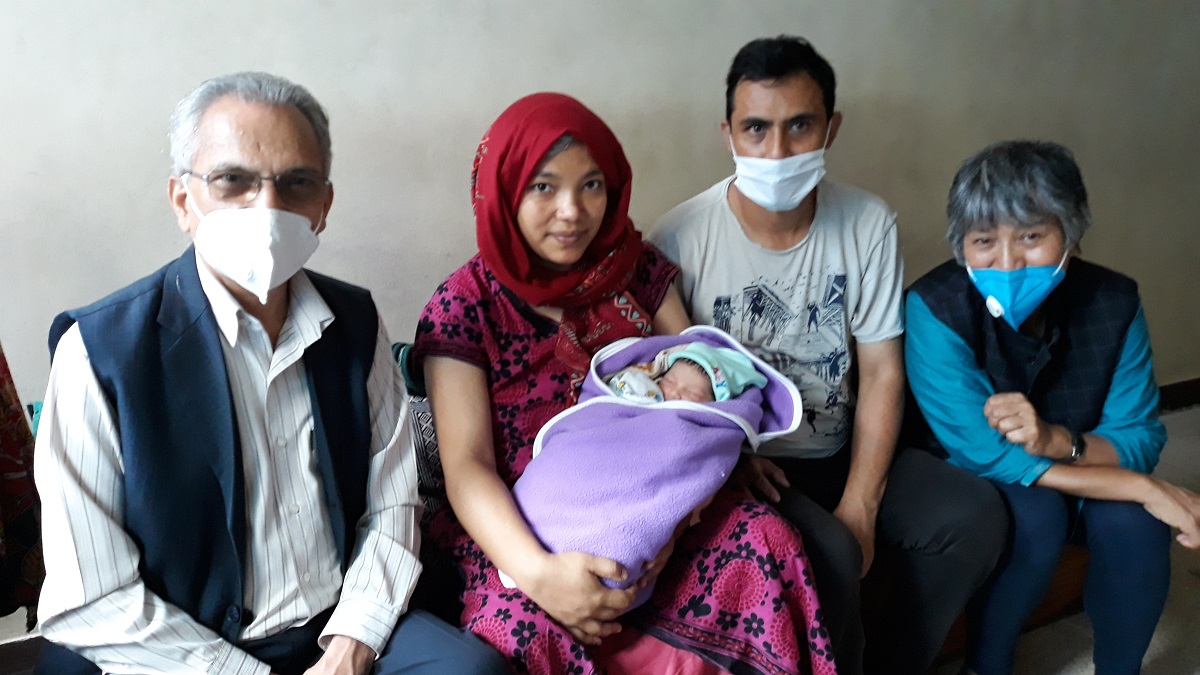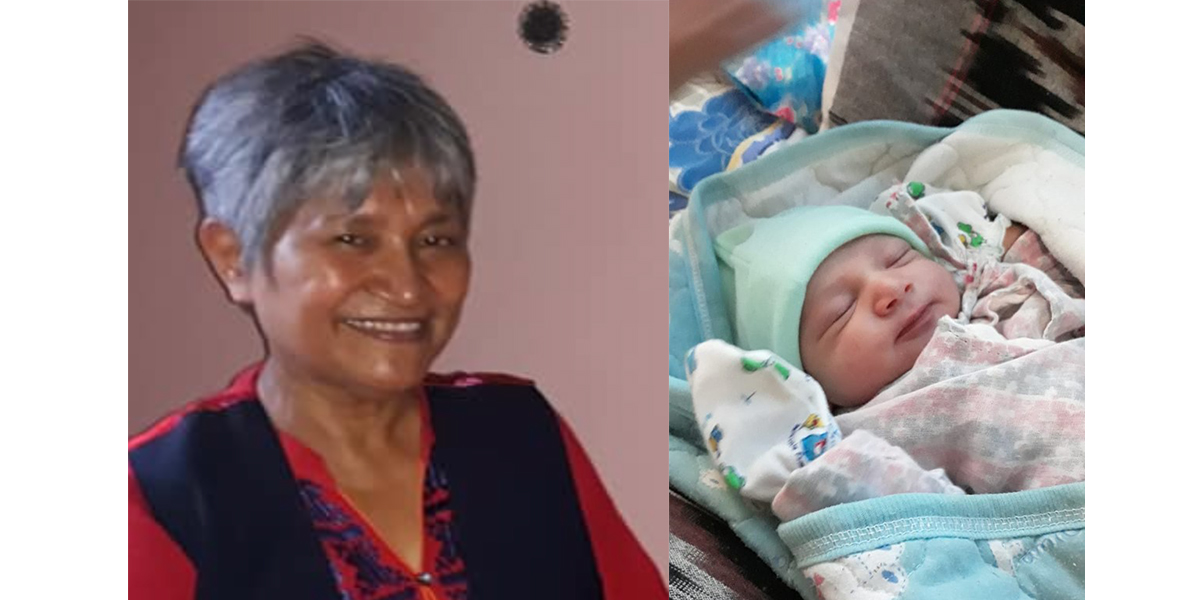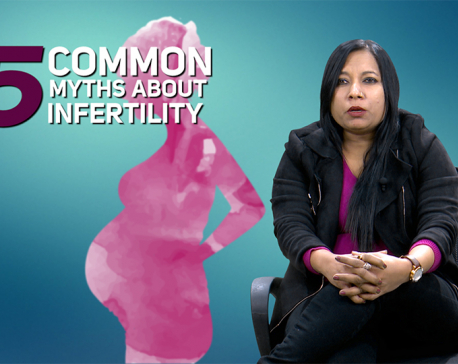
OR
Being a grandmother in the midst of COVID-19 pandemic
Published On: July 23, 2020 11:57 AM NPT By: Hisila Yami


Hisila Yami
Hisila Yami, former Minister of Physical Planning, Tourism and Land Reform, is a senior leader of Janata Samajbadi Party.hisila.post@gmail.com
Pregnancy brings uncertain times for both the unborn child and the mother, especially at the time of birth. Though rare, there are chances of complications and even fatalities of both mother and child or one or the other or lucky if both can come out of it with the flying colours. This is a fact even during normal times! But with COVID-19 pandemic, peripartum involving the whole package of prenatal, delivery and post-natal has become vulnerable.
I have my own experience of the death of my first child in the year 1984. I was excited about being a mother. Baburam Bhattarai (BRB) and I had planned the baby five years after our marriage. BRB was still working on his Ph.D. at JNU, India and I was teaching at IOE Pulchowk. As an educated, sporty, gender-sensitive political woman, I had armed myself with all the possible knowledge about pregnancy and was fully prepared for the day. But towards the very end of the pregnancy I developed jaundice even though I had taken a shot of Bilirubin (hepatitis) vaccine. I was told that the victim could be both the mother and the child, in fact more so the mother. Although I had a natural delivery, I lost my first child within 14 hours of the birth. BRB had written in the preface of Ph.D. his thesis The Nature of Underdevelopment and Regional Structure of Nepal about how our own child had become a victim of underdevelopment.

In 2020, my daughter Manushi was pregnant amidst COVID-19 pandemic. I was all the more alert as the news of mothers of newborn babies becoming victims of the pandemic all over the world, including in Nepal, started coming in. The first news of a nurse who died of the coronavirus after delivering a baby came from Dunstable University hospital in the UK in April 2020. It was followed by the first COVID-19 victim in Nepal, who was also a mother, in May 2020.
We made sure that Manushi stayed home, and within our compound. I was worried when, with the advanced stage of her pregnancy, her fetus was not coming to the required position for delivery. This meant a possible cesarean delivery which we did not wish for. However, knowing that mothers are more vulnerable to the pandemic, we were ready for any type of delivery. Manushi had to be tested for coronavirus in case she was required to go for a cesarean delivery. The test was negative. We agreed to her doctor’s suggestion and went for a cesarean delivery. It was a wise decision because the umbilical cord had coiled around the baby’s neck and the unborn baby was already passing stool. The baby, weighing 3.2 kilogram, came out healthy. I was happy to hear that he gave a good wailing; I remember my first baby had a weak wailing. The best part of the Teaching Hospital, Maharajgunj where Manushi was admitted was that it had a separate unit for COVID-19 patients. It even has a separate delivery room for the COVID-19 patients.
I have to admit that my daughter is lucky. Manushi in 2020 is more informed than I was in 1984. She has access to smartphones to get the latest information about the development of a fetus to a full-blown baby. Manushi has at least five books to refer to pregnancy and baby-care, including Letters to My Baby: Week by Week Guide to Pregnancy and First Year of Child Development by Sangeeta Bhargava (2006) which I am also reading. I was amazed to discover that a mother has a unique capacity to produce milk as per her baby’s genetic condition. That shows how important mother's milk is to the newborn baby. It was interesting to find that that the fetus is equipped with undifferentiated sex at the beginning, and at one point the clitoris develops into penis and labia develops into balls and the baby becomes male.
After Manushi’s delivery on July 12, I was nervous because I was not familiar with cesarean delivery. In particular, I did not know how to help Manushi breast feed her child with her wound. I had normal delivery. I learnt quickly to facilitate breastfeeding. We were extra careful to keep both the mother and the son away from the crowd because of COVID-19. Only the grandparents were allowed to visit the cabin at the hospital. And we are following the same rule at Manushi’s home. We have a sanitizer and fresh masks at the entry of the baby's room so that limited people who visit him take precaution.
As I am writing this personal experience, I am also aware that many Nepali pregnant women, particularly those returning from abroad, have to face complications. And those who are in remote areas have no access to the facilities that we have in Kathmandu. Even within Kathmandu, I am aware of the confusions, complications and contradictions that pregnant and lactating women must be facing because of the pandemic and the government’s inadequate preparation.
Even though the mother and the baby are at home, they are in a high risk category for the next six months. According to Dr. Sant Das, the coordinator of Covid Management Committee at Teaching Hospital, precautionary measures still stands even after the government lifted the nationwide lockdown on July 20.
I remember Simone de Beauvoir, a noted French philosopher, who said it was the society which made a woman out of a female. I am now wondering: Will this society again make a man out of this child? BRB tweeted that he was happy to be a grandfather. And I tweeted: “Amid Covid pandemic crisis you came out bravely dear one day old grandson! Now hope to see you grow not as a macho man but a humanely human till 100 x 365 days!”
You May Like This

WWE star Kelly Kelly announces pregnancy
KATHMANDU, March 29: WWE star Barbie Blank also known as Kelly Kelly announces her pregnancy with husband Joe Coba. ... Read More...

5 common myths about Infertility (with video)
Are you worried about not being able to be a parent?? It may be because you’re simply taking considerations into common... Read More...

Pregnancy changes could sideline Williams from Wimbledon: experts
Tennis star Serena Williams could take a pass on Wimbledon if physical changes from her pregnancy such as balance and... Read More...



Just In
- World Malaria Day: Foreign returnees more susceptible to the vector-borne disease
- MoEST seeks EC’s help in identifying teachers linked to political parties
- 70 community and national forests affected by fire in Parbat till Wednesday
- NEPSE loses 3.24 points, while daily turnover inclines to Rs 2.36 billion
- Pak Embassy awards scholarships to 180 Nepali students
- President Paudel approves mobilization of army personnel for by-elections security
- Bhajang and Ilam by-elections: 69 polling stations classified as ‘highly sensitive’
- Karnali CM Kandel secures vote of confidence















Leave A Comment